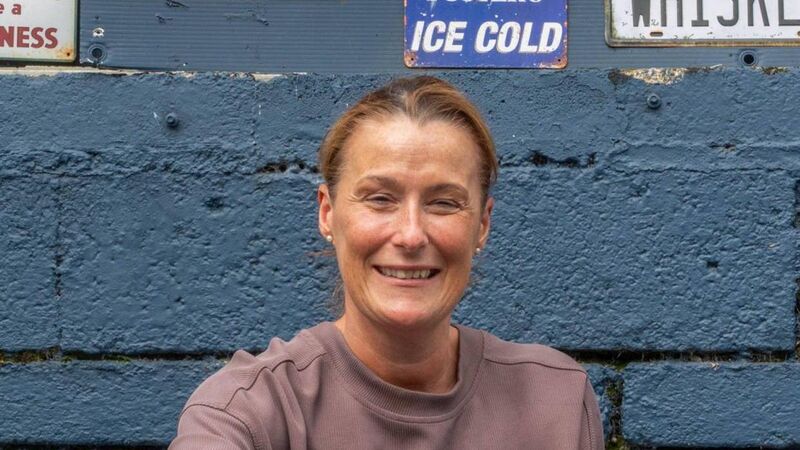John Dolan: Village pubs too vital to lose... so make it easier to keep them

Suit yourself.
Do you remember pub jokes? I guess they’ve gone out of fashion, given that the pub industry itself is facing an existential crisis.
We’ve all seen the statistics, but they still have the power to stop us in our tracks: Cork has lost more than 360 pubs since 2005 - more than one in three licensed premises - and there is no sign of an end to the decline.
The county now has villages and small towns that are in danger if turning into pub deserts - dry and thirsty and largely devoid of a social life.
Our hugely popular weekly series in The Echo, The Village Pubs Of Cork, has tapped into the reality of communities, particularly in rural areas, which in many cases are now down to their last bar standing.
In this week’s article, writer Noel Sweeney visited The Ferry Boat Inn in Ringaskiddy, the only pub in a place where once there were three,
“There’s no shop, no post office, no other pub. this is it,” said owner Sarah O’Grady.
She runs a thriving business, but it’s undoubtedly a difficult time for the hospitality industry in Ireland, battling changing habits and lower tourism numbers, along with rising costs of energy, insurance, and basic food and drink.
These pubs are the last bastions where local people can gather and talk. They have a value far above that of simply providing alcohol.
This week, Cork Independent TD Ken O’Flynn threw down the gauntlet to the Government to do something to halt the stream of ‘last orders’.
In a Facebook post, he called the trend of pub closures “a cultural crisis and a damning verdict on the Government”, adding: “These are not just shuttered businesses; they are the extinguished hearths of rural Ireland, where generations gathered for weddings, wakes, politics, sport, and song.”
Mr O’Flynn called for a string of financial incentives to help pubs offset the crises that face them.
However, I wonder if a new law about to be enacted in England holds the key to a solution here.
Communities there will be given extra powers to take over pubs and other assets threatened with closure, such as cafés.
Under the English Devolution and Community Empowerment Bill, residents will get first refusal on local businesses when they go up for sale, plus an extended 12-month period to raise funding to buy them. Scotland has similar powers already.
This community-ownership model of purchasing pubs has proved popular in Ireland in recent years, but legislation like this would make it even easier for local people to save their bars and have a say in running them.
In Kinsale, residents this year teamed up to try to raise €1.5m to buy the Harbour Bar there, and run it as a community pub
Lynn Harding, who is leading the fund-raising, feared international investors would swoop in and turn the pub into something else, so she posted on social media, asking for 1,500 locals to chip in €1,000 each.
The plan is to rename the bar Tim’s after the last owner, Tim Platt, who died in 2024.
“I didn’t expect people to respond the way they did,” Lynn told The Irish Times. “People nowadays almost feel there’s no point in trying to stem the raging tide of change and challenge.”
In Kilmeaden, Co Waterford, 13 customers took over the licence of Haughton’s pub by setting up a committee with shareholders. Not too far away, Maudie’s bar in Rathgormack, a scenic village near the Comeragh Mountains, was also bought by local residents.
Meanwhile, in Kerry, a successful GoFundMe campaign led to the community purchasing the Inny Tavern in Dromid via €110,000 fund-raising and a bank loan.
Local Eimear Ní Mhurchú said: “People have to do what they can while there’s still a possibility of doing something. If we don’t stand up for what matters to us, it will be our fault when it’s gone.”
Not so much a case of ‘build it and they will come’, but ‘save it and they will come’.
The encouraging news is that the government may be listening and preparing to act.
When she was Minister for Justice, Helen McEntee set out plans to modernise Ireland’s archaic licensing laws and provide more supports to the pub industry. A welcome development after years of prissy nannying by ministers who treat anything more than a half-pint as an affront to the nation’s health.
In an effort to attract young people, who tend not to be big drinkers, they now provide low- and non-alcohol options, as well as the kinds of fancy teas and coffees that are popular these days.
To this end, the VFI launched a ‘Pubs as Community Hubs’ pilot programme in 2022, with funding from the Department of Rural and Community Development, aimed at transformng pubs into multifunctional community hubs, helping to address issues of social isolation.
The programme also seeks to encourage rural pubs to diversify their services during quieter periods by hosting activities such as community cinemas, book clubs, arts and crafts workshops, and digital hubs.
There is a sense that Ireland is slowly heading in the right direction in stemming the tide of pub closures - and adopting that English law on community ownership would be another worthwhile step.
But speed is of the essence here. The existential threat to many pubs remains.
Earlier this year, we reported on the Ramble Inn in Halfway closing after 300 years of history and 44 years in the same family.
Once the shutters go up, it is very hard to pull them down again.







 App?
App?




